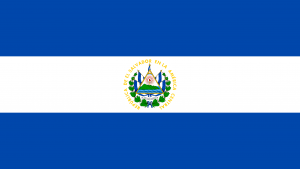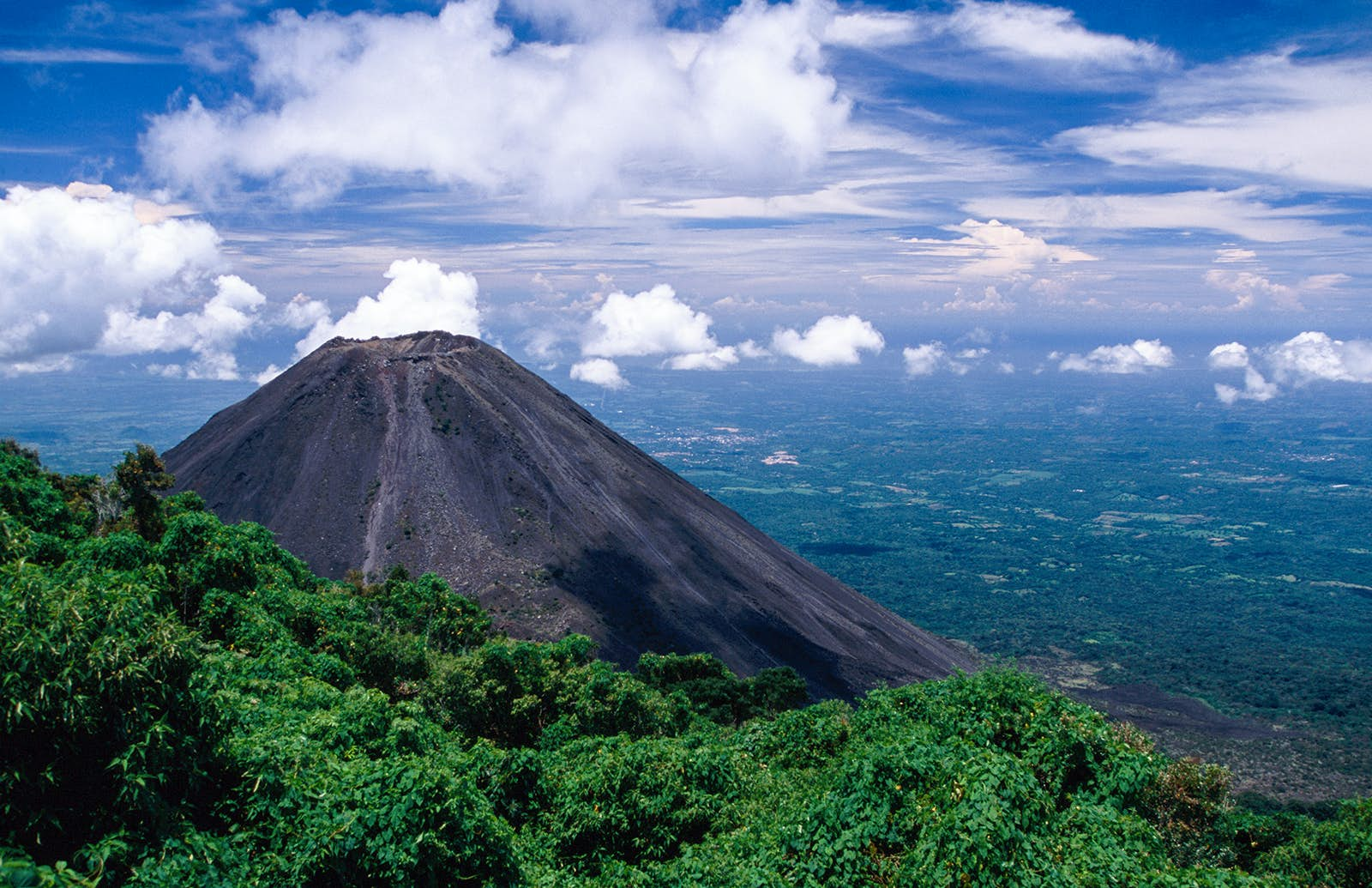Language/Spanish/Culture/El-Salvador-Timeline
El Salvador Timeline[edit | edit source]
Historical facts of El Salvador, timeline. Through time El Salvador has been marked by various events that have influenced its economic, cultural, political and social course, among all these events there are some that have stood out and are considered very important in the history of El Salvador.
Below we present a chronological line of the most important events in the entire history of the country and among which we find both political and economic events.
These are the most important events in the country since 500 BC. to the present.
- 500 years a. C. it is considered that the first settlers already inhabited the territory that currently includes El Salvador.
- In 1522 the Spanish admiral Andrés Niño arrived in El Salvador at the Gulf of Fonseca.
- In 1524 the Spanish conquest begins.
- In 1525 the first settlement was founded in San Salvador.
- In 1546 Carlos I of Spain granted the title of city to San Salvador.
- In 1811 the first cry for independence occurs.
- In 1821 the proclamation of independence occurs.
- In 1824 El Salvador promulgated the first Constitution of Central America.
- In 1841 the State of El Salvador was proclaimed as an independent Republic.
- In 1842 the National Assembly proclaimed the separation of the Federation of the United Provinces.
- In 1850 El Salvador and Honduras allied against Guatemala
- Conflict with Guatemala (1863)
- General Maximiliano Hernández Martínez assumes power and holds it for twelve years (1931)
- In 1932 the first communist uprising occurs.
- In 1944 the military insurrection occurs.
- In 1944 General Maximiliano Hernández Martínez resigned from the presidency.
- On June 21, 1954, the November 5 Dam was inaugurated, taking an important step in the development of El Salvador at the level of electricity supply and all that it implied.
- In 1960 a board of military and civilians dismissed President José María Lemus.
- In 1961, Colonel Aníbal Portillo overthrew the Government Junta through a coup d'état and established a Civic Military Directory.
- In 1969 the undeclared war broke out against Honduras, popularly known as the "Soccer War" and officially known as the "Hundred Hour War."
This war is said to have been due to the expulsion of more than 11,000 Salvadorans residing in Honduras, most of whom were living illegally and occupying Honduran lands.
- In 1972, Colonel Arturo Armando Molina was proclaimed president when the National Conciliation Party (PCN) won the municipal and legislative elections, a series of riots broke out because they considered that the elections were manipulated.
- In 1975 an organized movement was generated around leftist guerrillas and violence of political origin increased.
- In 1976, El Salvador and Honduras sign an agreement that establishes the mediation of a jurist from a third country in the peace negotiations.
- In 1977, General Carlos Humberto Romero was proclaimed President of the Republic, which caused new protests from the opposition.
- In 1979, President Romero is overthrown by a Military Junta, this coup is supported by several leftist leaders.
- In 1980 the Military Junta announced a radical plan for the Agrarian Reform.
- In 1980 Archbishop Oscar Arnulfo Romero is assassinated.
- In 1980 José Napoleón Duarte is appointed Head of State.
- In 1981 it is officially said that the so-called "civil war" begins in El Salvador.
- In 1981 the new political party Alianza Republicana Nacionalista (ARENA) was formed.
- In 1984 elections are held and José Napoleón Duarte is elected president.
- In 1984 the first negotiations between the government and the guerrilla (of communist ideology) began.
- In 1986, at exactly 11:49 am on October 10. An earthquake occurs that destroyed a lot of infrastructure in the country, especially in San Salvador.
There were numerous victims and to this day it is still remembered as one of the most destructive earthquakes in El Salvador. It was 5.7 on the Richter scale.
- In 1989 ARENA obtained the victory in the presidential elections and Alfredo Cristiani was elected president.
- In January 1992 the Peace Accords were signed in the city of Chapultepec, Mexico. This year the FMLN political party is also legalized.
- In 1993, the National Civil Police was created and began operations, after many things were restructured after the Peace Accords.
- In 1996 energy production was privatized in El Salvador.
- In 1998, telecommunications in El Salvador were privatized when the shares of CTE-ANTEL were sold.
- In 2001 the dollarization process began where the US dollar supplanted the national currency, the colones.
- In the same year 2001 two earthquakes occur that cause a significant number of damages. The first earthquake was 6.6 degrees and the second was 6.1 degrees.
- In 2009, the FMLN political party after contending for the presidency of the country for many years, finally managed to reach executive power on March 15 of that same year due to the fact that its candidate Mauricio Funes (a popular Salvadoran journalist) won the elections. presidential elections for the period 2009 to 2014.
- In 2010, a beloved animal in El Salvador, the Manyula elephant, died, who lost his life at 60 years of age. Despite being a minor event in the rest of the world, it struck a chord in the hearts of Salvadorans.
- In 2010 the internal political landscape of the country underwent a change when a new political party was formed called GANA (Great Alliance for National Unity).
- In 2011, the President of the USA, Barack Obama, visited the country on a tour that he carried out in Latin America.
- In 2015, the construction of a special lane in San Salvador was completed to be used by the SITRAMSS transportation system. With this system the state transport of the capital is modernized in a certain way.
- In 2016 an important event occurs in El Salvador in relation to Salvadoran personalities from the political sphere. This year ex-President Francisco Flores passes away.
- In 2017, a new political party, New Ideas, was founded.
- On February 3, 2019, Nayib Bukele candidate of the political party "New Ideas" wins the presidential elections.
- On March 21, 2020, a national curfew (or quarantine) is established due to the global health alarm.
- On June 8, 2021, the so-called Bitcoin Law was approved in the Legislative Assembly, which among other things approves that the cryptocurrency Bitcoin becomes legal tender in El Salvador.
As you may have noticed, these events have greatly influenced the course of Salvadoran history and although there are other important events, these are the most representative.
Source[edit | edit source]
World Timelines[edit source]
Other Lessons[edit | edit source]
- Cuba Timeline
- Ecuador Timeline
- Countries with Spanish as an official language
- Ceuta and Melilla Timeline
- Why Learn Spanish
- History
- Chile Timeline
- Peru Timeline
- Bolivia Timeline
- Literatura
- Colombia Timeline
- Equatorial Guinea Timeline
- Canary Islands Timeline
- Mexico Timeline
- Dominican Republic Timeline


